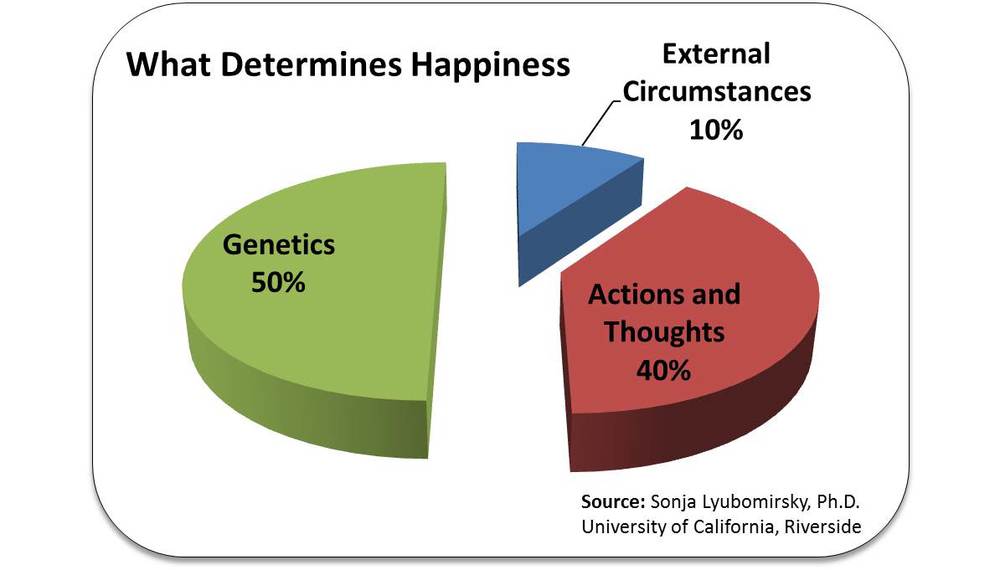
How happy are you?
Last week I found myself working with two different sets of people, where happiness was specifically on the brief. I was asked to “please provide a session on brain fitness for participants to see the value of humour to make them feel happier at work”.
Where has all the happiness has gone I wondered? Are we all that miserable that we have to be reminded that work and life isn’t always that bad?
We have what is known as a happiness set point. While we all have our ups and downs, our happiness level always recalibrates to this level. When things go horribly pear shaped, we think we will never recover – yet we do. When we are ecstatically happy, we think our high point happiness will last forever – it doesn’t. Little by little we settle back to that original set point.
What determines our happiness level?

You would be right in thinking it’s to do with our genes. Our genetic makeup contributes 50% to our set point. Yes, you can blame your parents for how happy you are generally to a degree.
Life circumstances, which we think influence us a lot only contribute around 10%,
Which leaves a whopping 40% that we determine depending on our choice of activities and behaviours.
So can we change our happiness set point?
Sure. We can move it either up or down depending on the choices we make.
The reason this matters is that when we are happy, we feel more confident, more energetic, and more alive. In terms of brain function, happiness promotes an open mindset that is more receptive to learning and alternative viewpoints. We are more collaborative, more willing to participate, more empathetic.
It’s not about looking through rose-coloured glasses, but adopting an optimistic realism that allows us to cope better and rise to the challenge of finding solutions to our problems and difficult decisions.
How can we turn up our happiness dial?
1. Stay curious to the wonders of our environment.
Take a moment to notice the beauty of your surroundings. Take the time to notice the sunshine, the breeze (or gale if you’re walking up St George’s Terrace) and the people around you.
2. Cherish your relationships.
Tell those you love how much you value them, how grateful you are for their qualities and strengths. Experience how expressing real and deep gratitude shifts how you feel overall.
3. Exercise your smile.
Smiling takes more muscle power, so give your face a workout and practice smiling more whether you feel it or not. It’s hard to stay grumpy or sad when you’re smiling. Some of the happiest people I know have smiles that light up a room like the Blackpool illuminations. Emotion is contagious, so your smile can brighten another person’s world. Why not try it and see how many people you can get to smile back?
4. Laugh. A. Lot.
Too often we forget how having a good laugh releases tension and reduces those stress hormones.
Vale Stella Young who so brilliantly taught us how humour can engage our attention and remind us what really matters. Far from being an unnecessary commodity inappropriate in the workplace, humour helps us to relate to others and motivates us to do more. So go on, choose to laugh and laugh out loud.
5. Just Be
Slowing down our thinking with a short mindfulness practice each day, taking the time to “just be” quietens down our limbic system and allows us to engage with our conscious awareness of what is going on for us right now, in the present moment. Lower stress levels make it far easier for our natural happiness levels to bubble up.
Whichever practice you find helpful, being happy is a gift that we can bestow on ourselves, so as to enjoy more and to find greater fulfillment and meaning in our lives.
As I head off to practice what I preach and entertain some down time, I would like to wish you and your families a very Happy #brainfitmas . I look forward to providing more great brain fit tips and musings with you in 2015.
See you on the other side of 2014.

